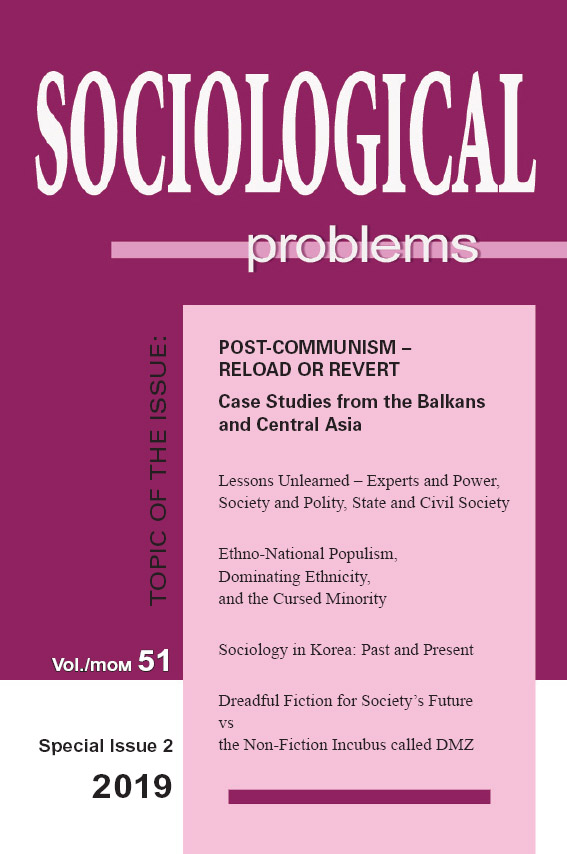The Power-Sharing Model in Theory and Practice: Lessons from Post-Conflict Macedonia (2001–2019)
The Power-Sharing Model in Theory and Practice: Lessons from Post-Conflict Macedonia (2001–2019)
Author(s): Mirjana MaleskaSubject(s): Politics / Political Sciences, Politics, Social Sciences, Sociology, Developing nations, Nationalism Studies, Identity of Collectives
Published by: Институт по философия и социология при БАН
Keywords: VMRO-DPMNE; Macedonia; Ohrid Peace Agreement; Bosnia; Kosovo; Albania; Serbia; SDSM; NATO
Summary/Abstract: The Ohrid Peace Agreement, signed between the central government in Skopje and the guerrilla army of ethnic Albanians after the armed ethnic conflict in Macedonia in 2001, has largely changed the constitutional framework of the previous political system. The so-called Westminster, or majoritarian, democracy established by the 1991 Constitution, which favoured the country’s ethnic majority (the Macedonians amount to 64% of the population), was fundamentally changed. A new model has been set up, known in political theory and practice relevant to such situations, as power-sharing. In the last 18 years, this model has demonstrated its advantages as well as its disadvantages. Under the umbrella of the so-called international community, which invested in the stabilization of this part of the Balkans (especially in Bosnia, Kosovo, Albania, Serbia and North Macedonia), this model of ethnic quotas and proportionality, decentralization, preferential policies and right of minority veto, contributed to inter-ethnic peace and a fragile balance of power. But the past 19 years has been a sufficiently long time for a critical assessment of the model, which has turned out to be largely reduced to corrupt governance. On February 9, 2015, the opposition party, Social Democratic Alliance (SDSM) publicly released a total of 36 packets of illegally made recordings of telephone conversations, including those of the Prime Minister, government ministers, holders of high public offices, mayors, deputies, the parliamentary speaker, opposition leaders, judges, the public prosecutor, civil servants, journalists, editors and media owners. These recordings had been made by the national intelligence services, at that time controlled by the ruling right-wing party VMRO-DPMNE (IMRO-Democratic Party for Macedonian National Unity). As a result of this massive abuse of human rights, after the elections in December 2016, VMRO-DPMNE was unable to form a government and the mandate was handed to the party with the second largest number of votes, SDSM (Social Democratic Union of Macedonia). A new coalition government, composed of SDSM and the party of ethnic Albanians, Democratic Union for integration (DUI), was able in two years to solve the most difficult and persistent problems – the country’s disputes with neighboring Bulgaria and Greece, and to fast-track the country’s membership in NATO and the EU. For the first time, citizens were divided not along ethnic lines but along ideological and political ones. They were either pro-Western or anti-Western (which meant pro-status quo). We have yet to see whether the thesis will be confirmed that, when citizens feel more secure, they are more inclined to be tolerant toward minorities, more sensitive to ethnic diversity and ready to adapt to the situation.
Journal: Социологически проблеми
- Issue Year: 51/2019
- Issue No: Special 2
- Page Range: 200-213
- Page Count: 14
- Language: English
- Content File-PDF

